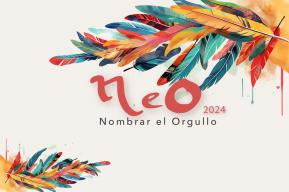Project
UN Joint Programme

Duration: 2019 – 2021
Donor: UN Multi-Partner Human Security Trust Fund for the Aral Sea region in Uzbekistan (MPHSTF)
UNESCO is committed to supporting the social and economic development of Karakalpakstan while ensuring the well-being of its local population, particularly women, youth, and vulnerable groups. One of the key strategies to achieve this is by fostering sustainable tourism in the region and safeguarding its cultural and natural heritage, as well as biodiversity.
Karakalpakstan stands out as an exceptional region, renowned for its cultural and natural treasures, including geological and historical marvels. However, in order to unlock its full potential and attract a global audience, it requires well-organized and intensive promotion efforts. Karakalpakstan is a land rich in ancient traditions and unparalleled natural beauty. It boasts numerous architectural and archaeological monuments dating back to ancient and medieval times. The intangible cultural heritage of the region is diverse and vibrant, encompassing traditional crafts, oral expressions, performing arts, lively folk festivals, rituals, and enduring traditions. Notably, there are 48 architectural monuments, 42 art monuments, 2 pilgrimage sites, and over 250 archaeological sites. Alongside these historical and cultural landmarks, Karakalpakstan is also home to unique natural wonders such as the Ustyurt Plateau (planned to be transformed into a natural park), the Kizilkum Desert, the Amudarya Delta, and other natural attractions. The Lower Amudarya State Biosphere Reserve, renowned for its Bukhara deer, and the Petrified Forest of the coal period located in the Kokcha elevation are among the region's notable natural sites. Moreover, Karakalpakstan offers immense potential for bird-watching, with the migration of flamingos being a captivating spectacle. The region's museums, including the State Museum of Art named after I.V. Savitsky, also attract international visitors. Interestingly, the consequences of the Aral Sea environmental disaster have paradoxically heightened the interest of eco-tourists in the region.
With its exceptional cultural and natural assets, Karakalpakstan has the capacity to entice visitors from all corners of the globe. However, realizing this potential and ensuring sustainable tourism development requires a long-term approach that harnesses the region's resources responsibly.
In pursuit of these goals, UNESCO Tashkent Office jointly with the UNDP in Uzbekistan, implemented the UN Joint Programme "Addressing the urgent human insecurities in the Aral Sea region through promoting sustainable rural development" from 2019 to 2021. The aim of this project was to address the environmental, social, and economic insecurities faced by the most vulnerable communities in the Aral Sea region through comprehensive solutions. These encompassed addressing environmental issues, promoting access to basic services, improving living standards, and developing sustainable tourism in Karakalpakstan.
Furthermore, the project objective is to enhance the social well-being of the rural population, with a particular focus on women and youth, by expanding income-generating opportunities and fostering inclusive and sustainable growth in the tourism sector. These efforts were centered on community-based and eco-tourism initiatives in the Aral Sea region.









